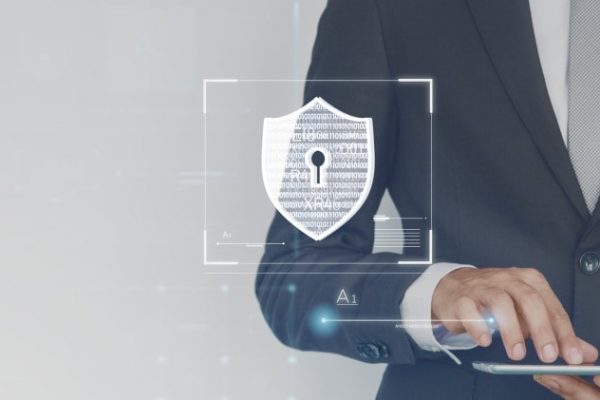What Is Information Security?

Information security, or infosec, is the practice and tools that help protect digital and analog kinds of information. infosec responsibilities include a range of IT and business processes that help organizations protect their information assets using tools such as authentication and permissions to restrict unauthorized users. These restrictions make the private information of the company unavailable from the unwanted users.
What is the difference between information security and Cybersecurity?
A wide range of objectives and scopes are in the both information security and cybersecurity’s domain. Generally, the cybersecurity program includes the organizational information security approaches to cover internet-based threats, namely server failures. On the other hand, Infosec is a broader type of protections such as cryptography, computing mobiles, and social media. Although the two phrases are sometimes used interchangeably, cybersecurity is a subclass of information security. In some extent, information security, in contrast to cybersecurity, may not cover raw, unclassified data protection.
In a nutshell, information security refers to the process of ensuring that your employees have access to the information they require while preventing others from doing so. Cybersecurity, on the other hand, is limited to Internet-based dangers and digital data. Furthermore, whereas information security does not encompass raw, unclassified data, cybersecurity does. It’s also linked to risk management and legal compliance. The overall purpose of information security is to let good people in while keeping evil people out. Confidentiality, integrity, and availability are the three main pillars that underpin this. The three pillars or principles of information security are referred to as the CIA triad.
the CIA triad of infosec:
Confidentiality, integrity, and availability are the three core concepts of information security. One or more of these principles must be implemented in every aspect of the information security program. infosec’s three primary objectives, called the CIA triad:
- Confidentiality
This feature, safeguards an organization’s information against illegal access in order to preserve the content’s private. The basic strategy for this phrase is to impose access limitations on people who have improper authorization to the data. This approach, however, is vulnerable to human mistake and hostile assaults.Confidentiality refers to the notion that information should only be accessible to those who have been granted permission to access it. The idea of integrity states that information should be consistent, accurate, and reliable. The concept of availability states that information is easily available to those with valid authorization and will stay so in the event of a failure to minimize user disruptions.
- Integrity
Protection against unwanted data modifications (additions, deletions, revisions, and so on) is included in consistency. The integrity principle assures that data is accurate and dependable, and that it is not tampered with in any way, whether mistakenly or deliberately. The capacity to alter or modify information is restricted, which helps to retain integrity. When analog information isn’t protected from the elements, digital information isn’t conveyed properly, or people make unauthorized changes, integrity is lost.
- Availability
The capacity of a system to make software systems and data completely available when a user requires it is known as availability (or at a specified time). The goal of availability is to make technological infrastructure, applications, and data available when they’re needed for a business process or by a company’s customers.
These three ideas are not mutually exclusive; they inform and influence one another. As a result, every information security system will require a balance of these variables. Information solely available as a written piece of paper housed in a vault, for example, is confidential but not immediately accessible. The information etched into stone in the lobby has a high level of integrity, yet it is neither confidential nor accessible.
Network and infrastructure security, as well as testing and auditing, are all part of the Information Security discipline, which is continually developing and evolving. Information security protects sensitive data from unauthorized access, modification, or recording, as well as disruption or destruction.
InfoSec is a rapidly expanding and changing discipline encompassing everything from network and infrastructure security to testing and auditing. Information security safeguards sensitive data against illegal access, alteration, or recording, as well as any disturbance or destruction. Information security refers to the strategies and practices used by corporations to protect their data. This includes policy settings that prevent unauthorized users from having access to corporate or personal information. Its goal is to safeguard sensitive information such as customer account information, financial data, and intellectual property. Security incidents can result in the theft of personal information, data modification, and data deletion. Attacks can halt business activities, damage a company’s reputation, and cost money.
How Do Cybercriminals Hurt Information Security?
Today, cybersecurity is a major concern for businesses due to the elevation of online devices. Cisco estimates that the number of linked devices will reach 65 billion by 2023. Cybercrime might become a serious danger to every organization in the globe since these linked devices hold a large volume of data that has to be safeguarded. Businesses are increasingly concentrating their efforts on establishing safe solutions that improve data security. Because national and international governments are leading cybersecurity measures, firms must ultimately be responsible for securing their own data.
Information Security is more than necessary
Companies have recognized the value of information security and have made initiatives to become recognized as having the most secure IT infrastructure. As a result, businesses spend a significant amount of money each year to secure the crucial information that underpins their operations. Here are four reasons why information security is so important to any company’s success.
– guarding against data leaks.
It’s all too typical for a data breach to result in the loss of vital corporate data. Businesses are frequently the major target of cyber-criminals because of the vast quantity of data held on corporate servers if the network is unsecured. Breach of corporate secrets, private health information, and intellectual property can significantly impact a company’s overall health.
– looking for hacked credentials and authentication issues.
Lax authentication, weak passwords, and inadequate certificate or key management are all common causes of data breaches and other cyber assaults. Identity theft often occurs as a result of companies’ struggles with providing access to authorized individuals or departments.
– Preventing from account takeover
Companies that rely on cloud services are particularly vulnerable because thieves may easily spy on activity, change data, and influence transactions since Phishing, fraud, and software exploits are still commonplace. Attackers can utilize these third-party programs to launch additional assaults as well.
– Protecting against dangerous insiders posing a cyber threat
An existing or former employee, a shrewd business partner, a system administrator, or an invader can all but destroy the information infrastructure or change data for their own gain. As a result, it is an organization’s obligation to implement appropriate procedures to govern the encryption process and keys. To keep everything under control, effective monitoring, logging, and auditing operations are critical.


